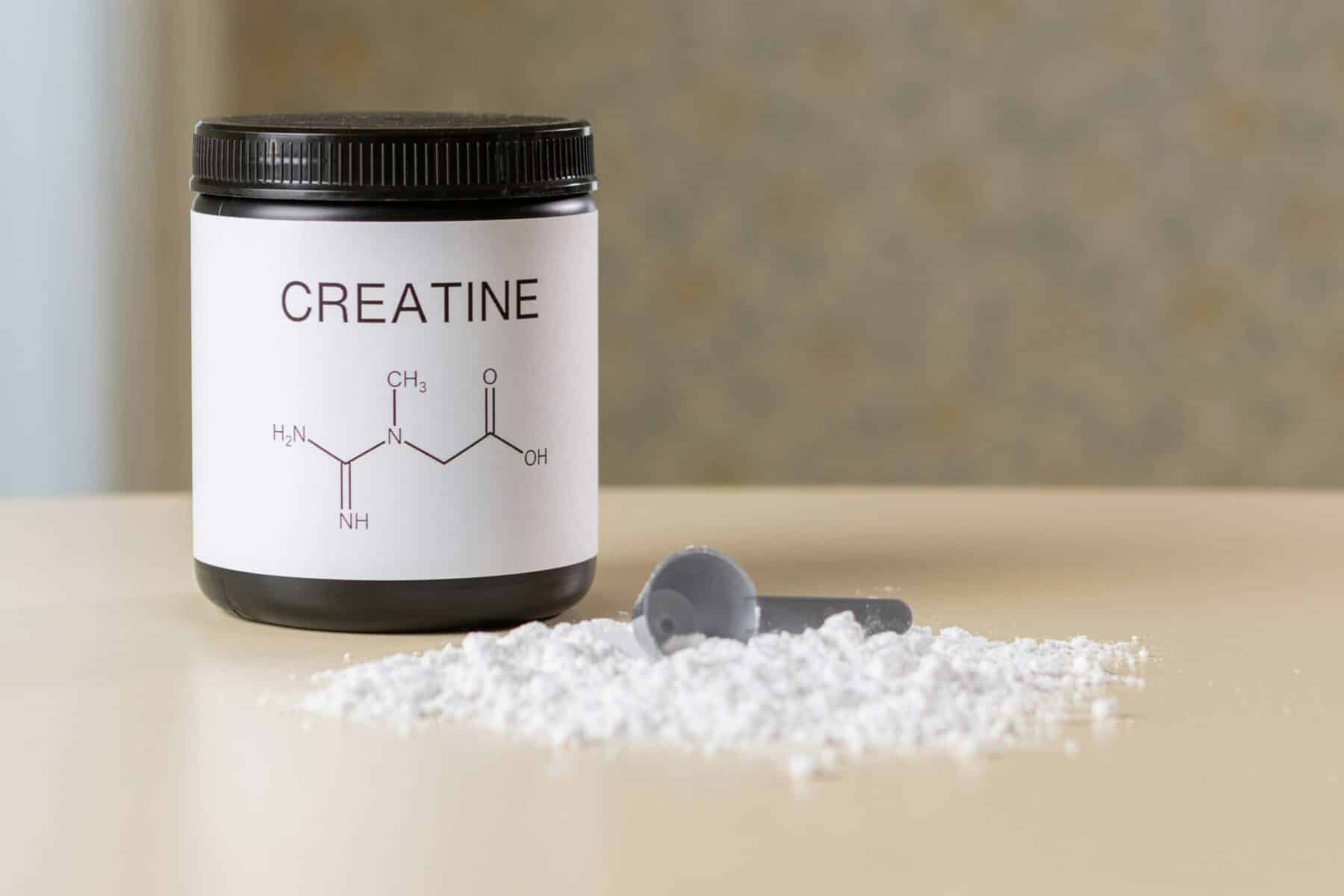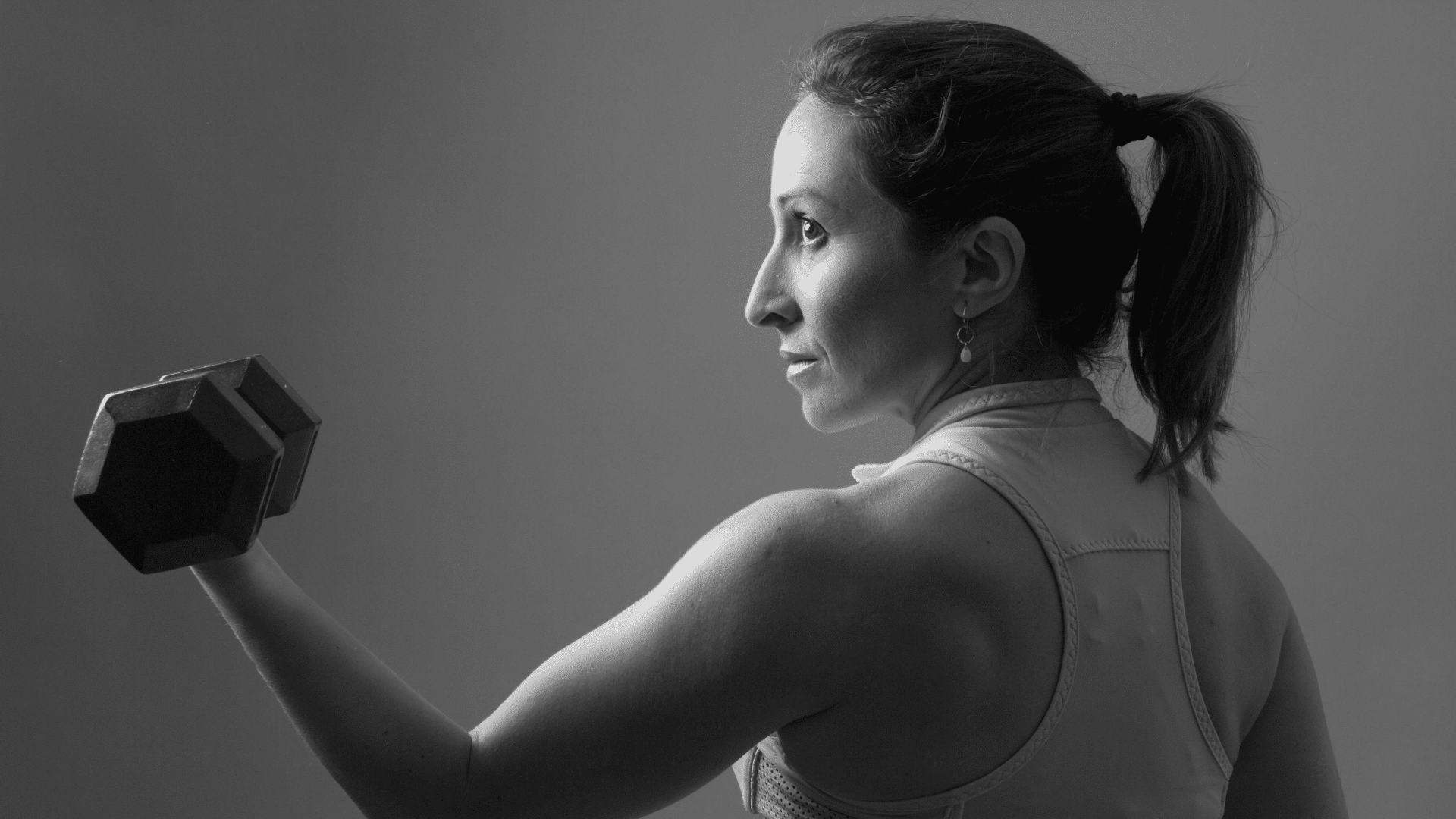When someone mentions creatine, chances are you picture a bulky male bodybuilder lifting crazy amounts of weight. But a growing body of research suggests supplementing with creatine has some impressive health benefits for women—and they extend far beyond the gym.
Before we explore the benefits of creatine for women, let’s start with the basics.
Creatine is an amino acid made by your liver, kidneys, and pancreas. It’s also found in food sources like red meat, seafood, and milk. Creatine is a natural energy source that can help you exercise more intensely and build lean muscle mass. But it also has promising potential to boost cognitive function, strengthen your bones, help your heart, and more.
Unfortunately, a normal diet only provides a small amount of creatine—and you may be at risk for a deficiency if you follow a vegetarian or vegan diet. That’s where creatine supplements come in. Keep reading to see why more women are adding creatine to their daily routines.
1. Improved Bone Mineral Density
Creatine monohydrate supplements, when combined with resistance training, were found to increase bone mineral density after 12 weeks, according to the Journal of Nutrition, Health, and Aging.
This finding is particularly important for women, as they have less bone mass than men and are more prone to osteoporosis (which makes bones brittle and weak) as they age.
2. Fatigue Resistance
Women are often prone to sleep deprivation, whether from work demands, pregnancy, or menopausal sleep disturbances. Impressively, creatine supplementation can combat fatigue in these exact scenarios.
Creatine plays a crucial role in the regeneration of adenosine triphosphate (ATP), which is the primary energy currency in cells, including those in the brain. By facilitating the rapid replenishment of ATP, creatine may support sustained energy production in the brain, especially during periods of high stress or sleep deprivation.
A 2002 study in Neuroscience Research found that creatine supplementation (8 g/day for 5 days) reduced mental fatigue when subjects performed mathematical calculations.
3. Improved Memory
Supplementing with creatine was shown to significantly improve working memory and intelligence test scores, according to this double-blind, placebo-controlled study involving 45 young adults.
The exact mechanisms through which creatine may improve memory aren’t fully understood. However, the researchers from this study hypothesized that it has to do with creatine’s role in brain energy homeostasis.
4. Heart Health
Your heart is a muscular organ that demands a lot of energy. Accordingly, keeping your creatine levels up may improve your cardiac health. A 2016 study in Amino Acids concluded that phosphocreatine administration can be successful at preventing ischemia-induced arrhythmia and improving cardiac function.
5. Pregnancy Benefits
You should always consult your healthcare provider before taking any supplements if you’re pregnant or breastfeeding. That said, if you do want to take supplements, it’s worth considering creatine.
A creatine deficiency during pregnancy may increase the risk of neurological complications, birth defects, and muscle weakness for the fetus. Accordingly, a 2016 review of female-specific benefits of creatine noted that creatine supplementation during pregnancy can benefit fetal growth, development, and health.
5. Muscle Recovery
Whether you’re into running, pilates, spinning, or weightlifting, creatine can help your body heal after a grueling workout. For starters, creatine has anti-inflammatory properties that can limit muscle damage after high-intensity exercise. Research also shows that creatine promotes protein synthesis, which is essential to rebuild your muscles.
Creatine supplementation may be especially important for women in their 40s and 50s since muscle mass often decreases during menopause.
How to Use Creatine as a Woman

Now that you know the benefits of creatine for women, let’s explore some best practices for incorporating it into your routine.
- Type of Creatine: Creatine monohydrate is the most researched and widely used form of creatine. It comes in powders, capsules, and gummies—either way, opt for a product with minimal additives or fillers.
- Dosage: The standard creatine dosage is 3-5 grams per day, according to the Journal of the International Society of Sports Nutrition.
- Time of Day: Creatine is often more effectively absorbed when taken with a meal that includes carbohydrates. Carbs help enhance insulin levels, which may facilitate creatine uptake by muscle cells.
- Frequency: Most people can take creatine daily—the effects of creatine should be noticeable in as little as two weeks.
- Hydration: Creatine can cause an increase in water content within muscle. Stay hydrated to support this process (women should aim to drink at least 11.5 cups of water per day).
Creatine Isn’t Just a Gym Bro Supplement
Sure, creatine can boost muscle growth—but only if you’re pumping seriously heavy iron. You won’t turn into the Hulk by adding a scoop of creatine to your morning smoothie. But you just might improve your memory, boost your energy levels, and do your future self a favor by protecting your brain and bones.
Creatine isn’t just for gym bros—it’s for every human being on the planet, ladies included.
